The integration that just changed how businesses will think about customer data analysis.
On June 4, 2025, HubSpot dropped a game-changing announcement: "doctorate-level research and analysis" is now at your fingertips, even if you've never written a line of SQL (Structured Query Language, used to manage and query data in databases). Their new Deep Research Connector with ChatGPT lets you ask plain-English questions about your HubSpot CRM data, right within ChatGPT. No complex report builders. No tech headaches. Just answers.
But here's why this is bigger than just a shiny new feature: it's a clear signal of where HubSpot (and CRM tech in general) is heading. AI isn't just an add-on anymore. It's quickly becoming the new standard, and businesses everywhere need to ask themselves: Are we ready for it?
How the HubSpot and ChatGPT Integration Works

Dharmesh Shah, the founder of HubSpot and the company's CTO, called the integration of HubSpot and ChatGPT a major milestone for the company's history. With this new integration, users can ask the platform questions like:
- "Identify our highest-converting persona and create a nurture sequence to boost engagement."
- "Segment my target companies by annual revenue, industry, and technology stack, then identify top opportunities for enterprise expansion."
- "Analyze pipeline stage friction and recommend tactics to reduce bottlenecks."
The system is able to analyze contacts, companies, deals, and tickets across your entire HubSpot database, then provide insights that can be immediately acted upon within your CRM workflows.
Key capabilities include:
- Natural language querying of live CRM data
- Deep analysis across multiple variables and conditions
- Actionable insights that integrate back into HubSpot workflows
- Read-only access that respects existing user permissions
- Exclusion of sensitive data from analysis
One early user described it as "having an extra analyst on the team"—except this analyst works 24/7 and can process years of customer data in seconds.
Why The HubSpot and ChatGPT Integration Matters
For years, sophisticated CRM analysis has required data scientists, analysts, or someone willing to spend hours building custom reports. HubSpot's ChatGPT integration changes that.
A marketing coordinator can now ask, "Which content topics drive the highest conversion rates for enterprise prospects in the healthcare industry?" and get a comprehensive analysis that previously would have required:
- SQL expertise or advanced reporting skills
- Hours of data manipulation
- Statistical analysis knowledge
- Time from a dedicated analyst
Now, that same analysis happens in minutes through conversation.
This is particularly powerful for SMBs, which make up most of HubSpot's 250,000+ customers. Smaller companies typically can't afford dedicated data analysts, making sophisticated CRM insights more of a luxury than a necessity.
How Team Dynamics Change
The Hubspot and ChatGPT integration doesn't just make analysis easier, it changes how teams operate. When every sales rep can ask complex pipeline questions, when marketing coordinators can segment audiences instantly, and when customer success managers can identify churn risks through natural conversation, the entire organization becomes more data-driven.
Here's how the shift looks:
|
Before |
After |
Impact |
|
Wait for monthly reports |
Real-time query capabilities |
Faster decisions |
|
Pre-built dashboards |
Custom analysis on demand |
More targeted insights |
|
Technical skill barriers |
Natural language interface |
Wider team participation |
|
Reactive data consumption |
Proactive exploration |
Discovery of new opportunities |
The SMB Advantage
Large enterprises have always had advantages in data analysis, including bigger budgets for analytics tools, dedicated data teams, and sophisticated business intelligence infrastructure. The HubSpot-ChatGPT connector starts to level that playing field.
A 50-person SaaS company can now perform analyses that rival what Fortune 500 companies do with entire analytics departments. The requirement? A paid ChatGPT plan (starting around $20 USD/month) and well-maintained HubSpot data.
What The Integration Means for Your Strategy

1. Data Quality Becomes Everything
AI amplifies everything, including your data problems. If your HubSpot instance is filled with duplicate contacts, inconsistent naming conventions, or incomplete records, ChatGPT will analyze that messy data and potentially provide misleading insights.
The "garbage in, garbage out" principle matters more than ever. Companies with clean, consistent data will see immediate value from AI integration. Those with messy CRM data need to clean house first.
Essential data hygiene for AI-readiness:
- Standardize naming conventions across all objects
- Implement required fields for key data points
- Regular deduplication and data cleaning
- Consistent tagging and categorization
- Complete contact and company profiles
2. Prompt Engineering: The New Business Skill
Getting "doctorate-level" insights requires knowing how to ask the right questions. The difference between asking "What are our best customers?" and "Analyze customers who renewed contracts above $50K in the past 12 months, segment by industry and company size, then identify common characteristics in their engagement patterns leading up to renewal" is the difference between basic information and actionable intelligence.
Smart companies are training their teams on effective AI communication e.g., context engineering best practices, treating it as seriously as any other business-critical skill.
3. Integration Strategy: Build vs. Connect
HubSpot's approach reveals an interesting choice: rather than building everything in-house, they're connecting to best-of-breed AI capabilities.
Two approaches are emerging:
- Embedded AI: Building AI capabilities directly into your platform (like Salesforce Einstein or HubSpot's own Breeze AI)
- Connected AI: Integrating with external AI services (like this ChatGPT connector)
Embedded AI offers tighter integration and simpler data governance. Connected AI provides access to cutting-edge capabilities that might take years to develop internally.
The most sophisticated companies—including HubSpot itself—are pursuing both, using embedded AI for common tasks and connected AI for specialized analysis.
How We Help Clients Prepare

At Roketto, we've worked with HubSpot for over 15 years. We've seen how properly implemented CRM systems become force multipliers for business growth. AI capabilities make strategic implementation even more critical.
Our approach to AI-ready HubSpot optimization:
1. Data Architecture Review
We audit your current HubSpot setup to identify data quality issues that could undermine AI analysis. This includes reviewing contact properties, deal stages, company categorization, and system data flow.
2. Strategic Property Configuration
We help configure HubSpot properties and workflows to capture data points that will be most valuable for AI analysis. With proper configuration, you'll have the right data consistently captured and properly structured.
3. Integration Planning
We help you develop a smart integration strategy that connects HubSpot with the right external AI tools—like ChatGPT, predictive analytics engines, or custom machine learning model deployment—while maintaining strict control over data access, user permissions, and compliance standards.
4. Team Training and Adoption
We provide guidance on prompt engineering, AI-assisted analysis, and translating insights into actionable strategies.
One of our SaaS clients saw a 150x increase in organic traffic after we helped them implement a comprehensive HubSpot strategy that included proper data architecture and content optimization. With AI capabilities now available, properly structured data becomes even more valuable for identifying growth opportunities.
What Happens Next

The Competition is Coming
HubSpot's "industry-first" claim won't last long. Salesforce already has Einstein GPT with natural language capabilities. Microsoft has deep partnerships with OpenAI. Zoho has been integrating AI through their Zia assistant.
Expect similar deep AI integration across all major CRM platforms within 12–18 months. Companies that prepare now will have a head start.
Likely Competitive Responses
- Salesforce will probably leverage their Microsoft partnership for deeper ChatGPT integration or double down on Einstein capabilities. Their Trust Layer gives them a strong foundation for enterprise AI adoption.
- Microsoft Dynamics 365 has the most obvious path given Microsoft's OpenAI investment. Expect deep integration between Dynamics and various OpenAI tools.
- Zoho might expand existing Zia AI capabilities while potentially adding external LLM connections for specialized analysis.
- Smaller CRM providers will likely benefit from OpenAI's Model Context Protocol (MCP), making it easier to build similar connectors without massive development resources.
Your Preparation Checklist
Immediate Actions (Next 30 Days):
- Audit your current HubSpot data quality
- Identify gaps in data capture and consistency
- Begin standardizing naming conventions and property usage
- Review user permissions and data access policies
Short-term Initiatives (Next 90 Days):
- Implement improved data hygiene processes
- Train key team members on prompt engineering basics
- Evaluate your current HubSpot configuration for AI-readiness
- Develop guidelines for AI tool usage in your organization
Strategic Planning (Next 12 Months):
- Develop a comprehensive AI integration strategy
- Assess the budget for AI tool subscriptions and training
- Plan for workflow changes as AI capabilities expand
- Consider the competitive implications of AI adoption timing
The Reality Check

HubSpot's ChatGPT integration is more than a feature update—it's a preview of how business software will evolve. AI will potentially enhance every interaction with your CRM, every dataset will be queryable through natural language, and every insight will be actionable in real time.
The question isn't whether AI will transform how you manage customer relationships. The question is whether you'll be ready.
Companies that invest in proper data architecture, team training, and strategic AI integration now will gain significant competitive advantages. Those who wait will struggle to catch up.
Ready to ensure your HubSpot instance is optimized for AI? Our team has helped hundreds of companies build scalable, data-driven growth engines through strategic HubSpot implementation. From data architecture and automation to advanced integrations and team training, we'll help you prepare for—and capitalize on—the AI-enhanced future of CRM.
Want to discuss how AI-ready your current setup is? Let's talk about your HubSpot optimization strategy.
About the Author: This analysis draws from 15+ years of HubSpot implementation experience and our work helping SaaS and B2B companies scale through strategic CRM optimization. As a certified HubSpot partner, Roketto has guided hundreds of organizations through major platform evolutions—from basic CRM adoption to advanced automation and now AI integration.

Ulf Lonegren
Ulf Lonegren is CEO and Co-Founder of Roketto, where he has led digital marketing strategy for over 15 years. With extensive experience in both traditional SEO and emerging AI search optimization, Ulf has guided hundreds of SaaS and ecommerce companies through major search algorithm updates and platform shifts. His expertise spans from the early days of Google's algorithm changes through the current AI revolution, giving him unique insight into what actually drives sustainable search visibility. Ulf's approach focuses on fundamental optimization principles that adapt to new technologies rather than chasing trending acronyms, a philosophy that has helped Roketto's clients achieve measurable growth across multiple search paradigm shifts.











2.png)
2.png)









